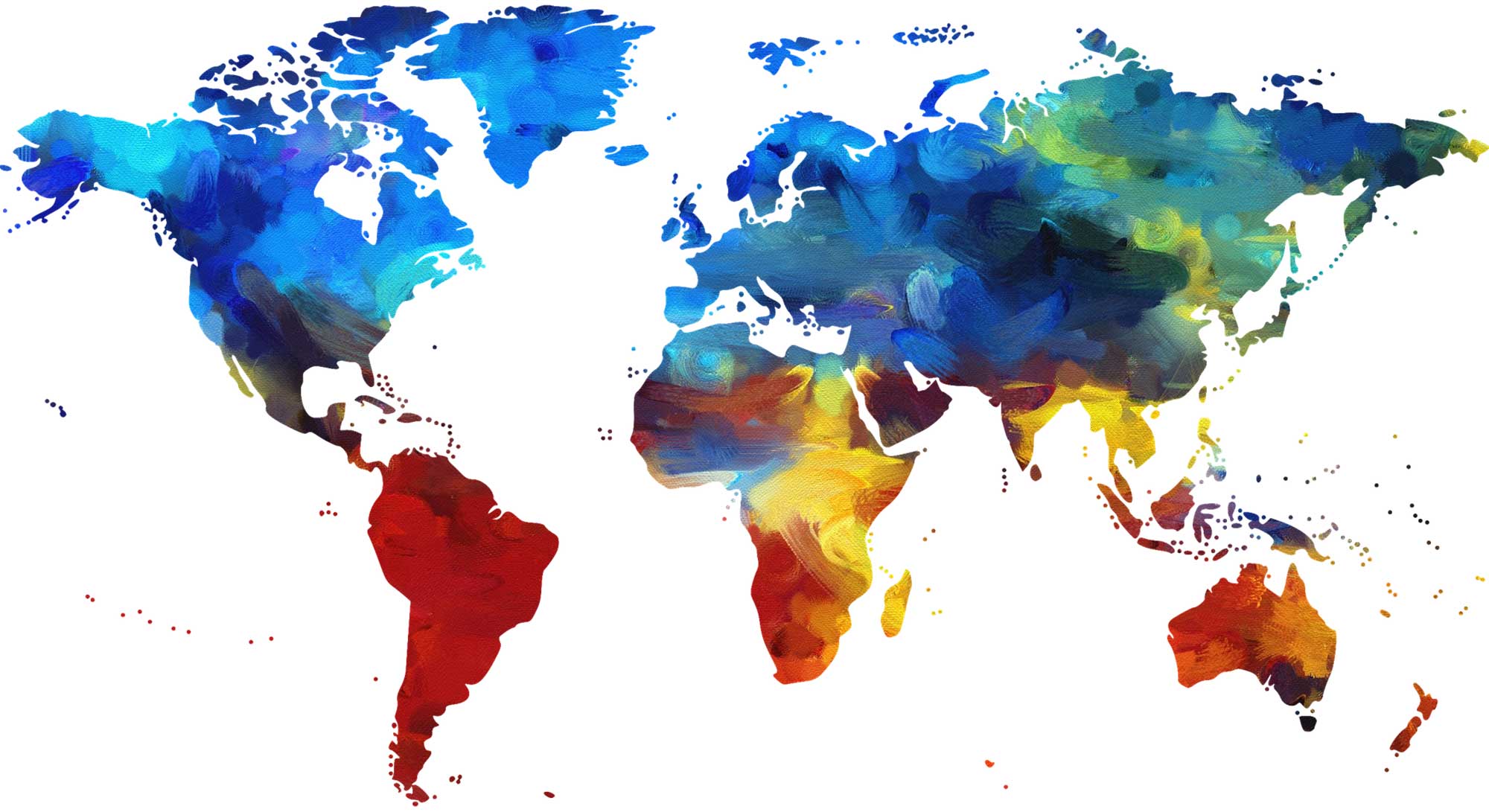
DOES GOD CARE? – Part 5
“A young Australian couple was on safari in Africa when they heard and felt a tremendous bang.
The city was Nairobi. The date was August 7, 1998. Bomb attacks on the US embassy left 212 dead and over 4,000 injured.
As the couple ventured out of their motel they decided to make their way down to the scene of the action.
When they arrived they could not believe their eyes. There was complete devastation.
People were running around in hysteria with blood flowing down their panicked faces.
Shoes were strewn all over the road and footpath. Police on horses were trying to keep people out of the blown up buildings and there were literally thousands of people anxiously searching for friends and family.
“An atmosphere of pain, suffering and death hung over the city.
As they turned a corner the couple saw a blown up car.
The car was situated in the middle of the road and it was quite obvious the people inside the car had been killed.
The occupants had left home that morning but would not return that night.
Situated next to the blown up car was the windshield.
It had been blown out of the car and was lying on the ground. The windshield was smashed but there was a sticker that ran across the top of it that was still intact.
The sticker on the windshield stated, “God is love”.


The young couple looked down at the windshield then looked back up at the awful scene.
The thought came to their minds, “How can a God of love allow such pain?”
Does God care? If so, why doesn’t He do something? And do it now!
This study guide, along with the lesson “The War Zone”, covers the subject of good versus evil.
In “The War Zone” we outline the origins of evil. In this lesson we ask one of the biggest question in life.
Why does God allow sin, pain and suffering?
Our focus on pain will take us on a journey into the heart of God.
What we notice may surprise you. God Himself suffers!
Understanding God’s pain will help us understand our own pain.
On the flip side, our pain also help us understand God’s pain.
Q1 – WHO IS GOD?
He who does not love does not know God, for God is love. 1 John 4.8
The Bible story begins by introducing God. “In the beginning God …” (Genesis 1:1).
It doesn’t explain Him. It doesn’t prove Him.
It doesn’t defend Him.
It simply presents God as the One who creates out of nothing and sustains all life.
God is a spiritual being, yet real. He is eternal and all-powerful.
He knows everything and is everywhere.
With over 100 different names for God in the Bible it’s no wonder the Scriptures say, “Behold, heaven and the heaven of heavens cannot contain you” (2 Chronicles 6:18).
God is love. He is not just loving. Being loving can change, but God doesn’t change.
Love is who He is.
It is His essence. It is His nature. God is “merciful and gracious, long-suffering, and abounding in goodness and truth” (Exodus 34:6).

Q2 – WHAT IS THE NATURE OF GOD’S LOVE?
Love suffers long and is kind; love does not envy; love does not parade itself, is not puffed up; does not behave rudely, does not seek its own, is not provoked, thinks no evil; 1 Corinthians 13.4,5
Today the word “love” is broad in its meaning.
Love can mean anything from an affair of lust to the nature of God sitting on His throne.
So what did the Bible writers mean when they boldly declared, “God is love”?
God’s love is unconditional. We seldom love the unlovely and usually love those who love us.
But God spontaneously loves everyone: “while we were yet sinners, Christ died for us” (Romans 5:8).
God’s love never changes. We sometimes “fall out of love”.
God doesn’t. To the rebellious Jews God said, “I have loved you with an everlasting love” (Jeremiah 31:3).
Even if we reject Him, God’s love for us is unchanged.
God’s love searches out those in need. Some feel we need to search after God as if He is playing hide and seek with us. But the Bible says God’s love has come to “seek and to save that which is lost” (Luke 19:10).
God’s love puts others first. Our love can be tainted with selfishness.
We often give so we can get. But God’s love “seeks not its own”.
It’s selfless. Jesus stepped down from His throne and became a man.
He was not born in a palace but in a barn with the animals.
He lived a humble life and died for us. Jesus put you first and Himself last.
God’s love is all giving. This doesn’t mean He gives us everything we want.
Love does not always equal wealth, ease and safety.
God is a loving Father who knows what is best for us. He provides our needs but sometimes leads us down bumpy paths.
Times of great challenge can teach us vital lessons in life and prepare us for eternity.

Q3 – WHAT IS THE CONDITION OF OUR WORLD?
And because lawlessness will abound, the love of many will grow cold. Matthew 24.12

Life is a paradox – a mixture of bliss and sorrow; delight and disappointment; hope and despair; melted hearts and broken hearts.
Life can be going along really well and then bang!
Disaster strikes.
You receive a phone call informing you that you have cancer.
You hear a knock on the door from the police telling you that your son has died in a car accident.
You discover your husband is having an affair with another woman.
The whole world is in distress.
War. Floods. Earthquakes. Cancer. Rape.Murder. Suicide.
According to the United States Bureau of Justice over 15,000 people are murdered every year including over 500 children.
Over 600 people are raped or sexually assaulted every day.
Many simply shrug their shoulders and say, “life is unfair”.
Evil is real.
Pain is real.
We are hurting.
Q4 – IS GOD RESPONSIBLE FOR PAIN AND EVIL?
‘Sir, did you not sow good seed in your field? How then does it have tares?’ He said to them, ‘An enemy has done this. Matthew 13.27
Jesus told a parable that depicted a farmer sowing wheat in the field.
As the wheat grew, so did the weeds.
Jesus told His listeners that the wheat (the good seed) represented the good while the tares represented the bad (Matthew 13:38).
When asked who was responsible for evil, Jesus clearly blamed the “enemy”, which is the devil (v39).
But that leaves us with a dilemma.
If God is love, then why do we have evil people?
Is the all-knowing Creator God responsible for creating the devil and hence creating evil?The study guide “The War Zone” deals with the origins of evil in more detail, however to summarise.
God is love. Love equals freedom, which means the ability to choose.
God didn’t create puppets because God wanted to love and be loved.
But there is a risk with love because real love means there is the possibility of rejection.
In the case of Lucifer, the possibility of evil and rebellion.
God did not create evil or a devil.
He created a perfect being called Lucifer who was created with a free will.
Lucifer chose to reject God’s love and in so doing became the devil.
So who is responsible for evil? Not God. The devil is.
The pain in our world today is not a result of God being absent, but a result of the devil being present.
We also have freedom of choice.
As a result, we also play a part in evil.
The pain of evil often comes from either our choices or the decisions of others.
In fact sin comes as a package.
The initial experience is exciting.
The total experience is painful.

Q5 – WHAT IS GOD’S SOLUTION TO EVIL?
For God so loved the world that He gave His only begotten Son, that whoever believes in Him should not perish but have everlasting life. John 3.16

Solving evil is not a quick fix.
God’s master plan involves a process that takes time.
God has provided time and space for the results of sin to be seen in their entirety.
The heart of God’s plan to eradicate evil is the cross of Calvary.
On the cross Jesus paid the penalty for sin and defeated the power of sin.
The cross provides a framework to help us tackle the question, “Does God Care?” Calvary shows a God who gave until there was nothing left to give.
The things we find hard to understand about God (our pain and suffering) are accepted on the basis of what we do understand about God (His pain and suffering).
Q6 – TO WHAT EXTENT DOES GOD UNDERSTAND PAIN AND SUFFERING?
He is despised and rejected by men, A Man of sorrows and acquainted with grief. Isaiah 53.3
No-one has ever suffered more than Jesus.
He was misunderstood.
Rejected. Abandoned. Accused. Beaten. Killed.
As Jesus was crucified He cried out, “My God, My God why have you forsaken Me?” (Matthew 27:46).
These were not rehearsed lines from a Hollywood actor.
This was Jesus feeling His heart torn apart from the horror of separation from His Father.
Jesus became like a crumpled piece of paper thrown as far away as possible; an old junk car that children throw stones at.
Jesus not only died through physical torture, He died in His soul. Christ became a curse for us; “cursed is everyone who hangs on a tree” (Galatians 3:13).
A martyr suffers physically but has the hope of eternal life.
Jesus felt as if this was it. Eternal death. Jesus experienced the equivalent of what the Bible calls the “second death” (Revelation 20:14,15).
He would soon be resurrected but He didn’t feel that way.
He became a God forsaken God who felt the full pain of evil.
No matter what pain or tragedy you may be feeling, Jesus understands.
He understands all our pain.
Physical pain. Mental pain. Emotional pain. Spiritual pain.
We can only imagine His pain.
What about God the Father?
Some have suggested that God was a coward for sending His Son.
But which is easier? Going through your own pain or seeing the one you love most suffer?
God so loved the world that He gave His only Son.
There is no greater gift or expression of love than that.
God the Father understands suffering more than we can ever comprehend.

Q7 – WHAT DOES THE CROSS TELL US ABOUT GOD?
Greater love has no one than this, than to lay down one’s life for his friends. John 15.13

Not even the angels knew how good God was until the cross.
Jesus not only died for His friends, He died for those who were killing Him.
And the devil was orchestrating the murder.
Any lingering doubts from the war in heaven were forever settled at the cross.
The cross shows us the hurt sin caused the heart of God.
Jesus gave Himself and He would rather not live than live without you.
The cross tells you that you are of infinite value to God.
He paid for you – not with a billion dollars, but with His own blood.
Even when it seems your world is falling in all around you the cross
tells you that God loves you.
He is on your side and supports you.
He understands you and is your friend. He hurts when you hurt.
You can trust Him.
God cares.
Q8 – WHY DOESN’T GOD STOP EVIL NOW?
He said to them, ‘An enemy has done this.’ The servants said to him, ‘Do you want us then to go and gather them up?’ But he said, ‘No, lest while you gather up the tares you also uproot the wheat with them. Let both grow together until the harvest, and at the time of harvest I will say to the reapers, “First gather together the tares and bind them in bundles to burn them, but gather the wheat into my barn.” Matthew 13.28-30
In the parable Jesus says evil must stay around long enough to be seen for what it is.
If evil (the tares) was eradicated before it had matured there was a chance good people would be lost.
What does Jesus mean?
This is a difficult issue.
No-one has all the answers and there is much that we do not understand – for instance the bombing in Nairobi.
But evidently the horror of sin will be seen more fully in the future, when the world reaches an even worse state than it is now.
What is not clear now will be seen very clearly then.
God needs to ensure that all of those who are saved have no attraction and affection for sin.
Even with pain all around us we still do not see evil in its entirety.
But the devil is so full of hate it will soon be shown in all its fury.
God is powerful enough to stop sin now.
But in His eternal wisdom He has chosen not to – yet!
The world in which we live has all sorts of problems.
It is full of sin and pain.
But God is allowing sin to take its course.
Solving the problem of sin is a process and the last thing God wants is “War in Heaven II”.
In fact it cannot happen.
It will not happen.

Q9 – HOW DOES GOD FEEL ABOUT YOU?
For I know the thoughts that I think toward you, says the Lord, thoughts of peace and not of evil, to give you a future and a hope. Jeremiah 29.11

God is personally interested in you and He has wonderful plans for your life.
There are times when it seems God doesn’t care.
Even worse, we think He may be against us.
But we can be certain that God is working things out in our life to give us a bright future.
From our perspective we may not be able to see this, but we can trust God and His promises.
The key thing to remember is that God is preparing us for heaven; an eternity with Jesus.
Q10 – WHAT SHOULD WE DO IF WE ARE ANXIOUS OR SUFFERING?
Casting all your care upon Him, for He cares for you. cares for you. 1 Peter 5.7
C.S. Lewis said, “God whispers to us in our pleasures … but shouts in our pain; it is His megaphone to rouse a deaf world” (The Problem of Pain, p91).
An ancient Bible story is told of a man named Job.
He was doing really well in life until the devil approached God and told Him that Job was faithful because He was protected.
God allowed the devil to harass and torment Job. The result?
Job lost everything but remained faithful. Job said, “though He slay me, yet will I trust Him” (Job 13:15).
This story demonstrates that Satan produces trials.
God allows them to refine our characters and demonstrate the pain of evil.
Next time you think of asking God,
“Why don’t you do something?” consider the thought that maybe He is asking you the same question.
Helping other people in pain helps you.
We learn to think of others above ourselves and we experience true love.
Our life is enriched as we reflect the love of Jesus.

Q11 – HOW DOES GOD USE PAIN FOR OUR GOOD?
And we know that all things work together for good to those who love God, to those who are the called according to His purpose. Romans 8.28

It is one thing to believe in God but do we trust Him?
Many of us are natural worriers. We absorb the pressures of life and try to plan solutions to our own problems.
Our anticipated concerns often don’t eventuate nearly as badly as we thought.
We get stressed and this impacts on our health and spirituality.
God wants us to take all our worries, burdens, pain and stress to Him.
He cares for us and He will comfort us.
In fact Jesus promised us the Holy Spirit, the Comforter, to provide spiritual encouragement and power.
Ask God to give you peace in your storm.
If God can create the universe and loves you so much that He died for you, you can trust Him to guide your life and give you comfort when you are hurting.
Q12 – WILL THERE BE PAIN IN THE NEW EARTH?
And God will wipe away every tear from their eyes; there shall be no more death, nor sorrow, nor crying. There shall be no more pain, for the former things have passed away.” Revelation 21.4
Pain will be completely absent in the new earth.
So will the pain of pain.
No tears. No death. No sorrow. No crying.
The devil will be obliterated and sin will never raise its ugly head again (Nahum 1:9).
Now that is something to look forward to!

Q13 – WHAT WILL WE CONCLUDE ABOUT GOD AND HIS CHARACTER?
“Great and marvelous are Your works, Lord God Almighty! Just and true are Your ways, O King of the saints! Revelation 15.3

There are many things we do not understand about God.
We believe God can do anything and yet we see evil all around us.
Our minds find it hard to comprehend.
But when sin is over; when the world has no more pain; we will truly appreciate that God’s plan to forever remove sin was the best plan.
God does care.
God is love.
Three points to remember:
•God cares
• The cross demonstrates God’s love
•God understands pain
The Story:
Kalvin was travelling from Brisbane to New York on a business trip. As he began talking to Lucas, the person seated next to him, the conversation soon turned to religion. Lucas told Kalvin he was a geology student at the University of Queensland. He said his mother was a Catholic and his father was an atheist. Kalvin asked Lucas if he had a personal faith. “Oh no”, Lucas said. “I am an atheist like my father.”
Lucas then asked if Kalvin had a faith. Kalvin told him that he was a Christian. Lucas sat back in his seat and asked Kalvin what made his religion different to other religions. Kalvin thought about it for a while.
He was about to comment on some points of difference between his denomination and others, but instead he then made a comment that startled Lucas. Kalvin said, “We are also atheists”. “How so?” said Lucas.
He couldn’t believe his ears and Kalvin could see his intelligent mind ticking over at the concept of a Christian atheist.
Kalvin then turned the conversation back to Lucas. “Well you tell me about the God you don’t believe in”. Lucas was a little perplexed. “How can I?
I don’t believe in God,” Kalvin replied, “Yes but you must have a mental picture of this God you don’t believe in?” “Oh, OK. Good point. Yes I believe He is big and powerful. But indifferent. In fact, quite cruel when I think of it. I don’t think He cares at all.”
Kalvin jumped in, “There you go, I don’t believe in that God either. But what if you discovered a God who really cares.
Who loves with such a perfect love that He gives perfect freedom. Who gives everyone the ability to not only love Him, but also reject Him.
A God prepared to die so you can live.
A God who knows there are bad things in our world but gives us strength to cope. A God who ensures that anyone who really wants to live with Him in heaven will get there.”
Lucas sat back and thought about it. He said, “I have never heard that before. You’ve really got me thinking.”
How would you describe God to someone you meet for the first time? What can we do to paint such a picture of God that people like Lucas are attracted to God?
Relational questions
1. f you were told that you have a terminal illness how do you think you would cope?
2. How do you gain strength and courage when you experience pain and suffering?
3. Share an experience where God has brought good out of a bad situation.
Your response:
Life can be very difficult and we don’t have all the answers.
But can you see that God does care for you and do you choose to trust Him completely with the rest of your life?

